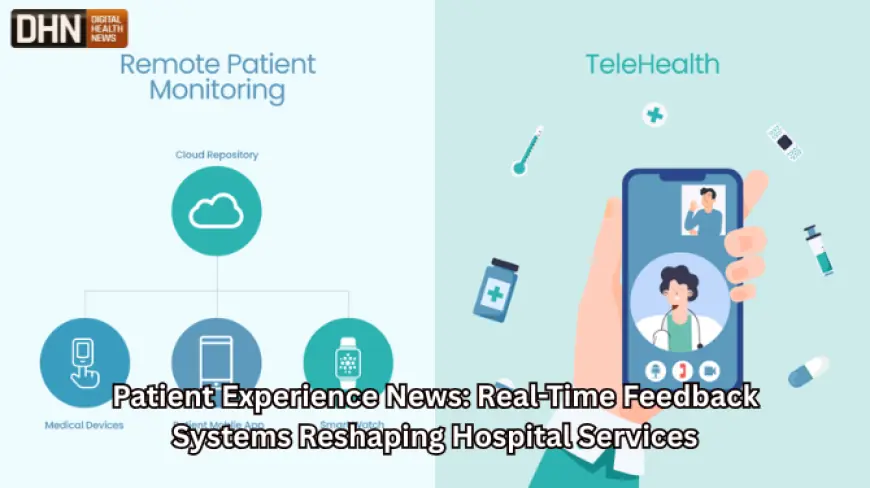Patient Experience News: Real-Time Feedback Systems Reshaping Hospital Services
Patient Experience News: Real-Time Feedback Systems Reshaping Hospital Services

In 2025, hospitals are undergoing a digital transformation focused not just on clinical outcomes—but on patient satisfaction. According to the latest Patient Experience News, real-time feedback systems are emerging as powerful tools to enhance how healthcare facilities deliver care, respond to concerns, and build patient trust.
What Are Real-Time Feedback Systems?
Real-time feedback systems are digital platforms that allow patients to share their immediate thoughts and experiences while still receiving care—during hospital stays, after appointments, or following a telehealth session. These systems go beyond traditional surveys by capturing input in real time, allowing providers to act quickly on issues before they escalate.
Examples include:
-
In-room tablets or kiosks for inpatients
-
SMS or app-based check-ins post-appointment
-
Instant chat options on telemedicine portals
Why Real-Time Feedback Matters
Traditionally, hospitals relied on end-of-stay or post-discharge surveys. But by then, it’s often too late to correct a poor experience. The new shift—highlighted in Patient Experience News—enables staff to intervene immediately. If a patient is uncomfortable, confused, or frustrated, staff can respond within minutes, not days.
Key Benefits for Hospitals and Patients
1. Faster Service Recovery
When hospitals receive feedback in real time, they can resolve complaints instantly—such as room issues, wait times, or miscommunication—boosting patient satisfaction and loyalty.
2. Higher Patient Engagement
Patients feel heard and valued when they see their concerns being addressed during their visit. This contributes to a more collaborative care environment, where patients actively participate in their treatment journey.
3. Better Staff Accountability
According to Patient Experience News, facilities using real-time tools saw an increase in staff responsiveness, as individual teams receive live alerts on patient concerns and performance metrics.
4. Improved Hospital Ratings
Hospitals adopting real-time feedback solutions often see an uptick in online reviews and HCAHPS scores, which impacts both public reputation and reimbursement rates.
How Hospitals Are Using the Data
Beyond responding to individual concerns, hospitals use aggregated real-time data to identify systemic issues—such as bottlenecks in ERs, communication gaps, or common pain points in discharge processes. This data is then used to:
-
Train staff
-
Redesign workflows
-
Improve scheduling and resource allocation
Real-World Example
A recent Patient Experience News report spotlighted a large urban hospital that implemented tablet-based surveys in all inpatient rooms. Within three months, patient satisfaction scores rose by 25%, and the number of unresolved complaints dropped by 40%. These numbers show how simple digital tools can drive big improvements.
Final Thoughts
As healthcare becomes more patient-centered, real-time feedback systems are proving to be a vital innovation. The most recent Patient Experience News confirms that hospitals embracing these tools are not just collecting data—they’re transforming care delivery. In a world where patient experience matters more than ever, listening and acting in real time is no longer optional—it’s essential.
What's Your Reaction?
 Like
0
Like
0
 Dislike
0
Dislike
0
 Love
0
Love
0
 Funny
0
Funny
0
 Angry
0
Angry
0
 Sad
0
Sad
0
 Wow
0
Wow
0
















































